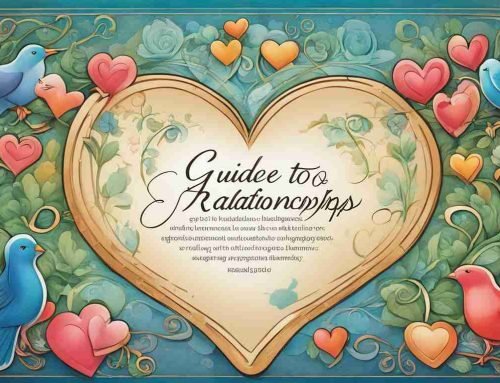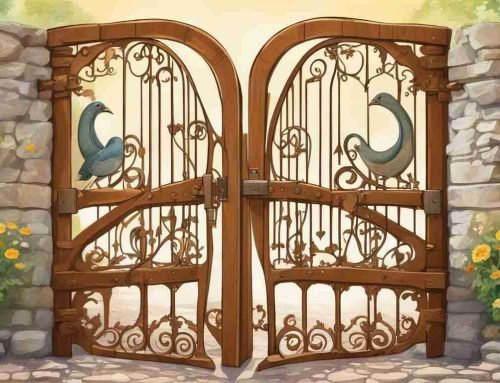Relationships are a beautiful bond that enriches our lives and gives us happiness, companionship, and support. But, even the most perfect relationships aren’t immune to conflicts and disagreements. Indeed, conflicts are a part of any relationship, and how we deal with them determines the longevity and strength of the bond.
Conflict resolution is not a natural talent, but an art that can be learned. It takes effort, patience, and a willingness to understand and empathize with others. Whether you are in a committed relationship or starting a new one, mastering the art of resolving conflicts is crucial in keeping the bond intact.
Key Takeaways
- Conflict resolution skills can be learned and developed over time.
- Effective communication techniques are crucial in conflict resolution.
- Identifying the root cause of a conflict is key to resolving it.
- Empathy and understanding can help build a stronger and healthier bond.
- Collaborative problem-solving approaches can lead to effective conflict resolution.
- Seeking professional help is not a sign of weakness, but a proactive step towards resolving complex conflicts.
Understanding the Impact of Unresolved Conflicts
Conflict is a natural part of any relationship, and it’s not always a bad thing. In fact, healthy conflict can lead to growth and understanding. However, when conflicts go unresolved, they can have a significant negative impact on a relationship.
One of the most significant impacts of unresolved conflicts is the breakdown of communication. When couples are unable to resolve their conflicts, they often become defensive and stop listening to each other. This can lead to increased tension and, ultimately, a breakdown in the relationship.
Unresolved conflicts can also lead to resentment and anger. When one partner feels that their needs are not being met, they may start to build up resentment towards their partner. This can lead to passive-aggressive behavior, which can further damage the relationship.
Another impact of unresolved conflicts is that they can lead to the erosion of trust. When partners are unable to resolve their conflicts, they may start to doubt each other’s intentions and motives. This can lead to a breakdown in trust, which is a crucial component of any healthy relationship.
Overall, it’s clear that unresolved conflicts can have a significant negative impact on a relationship. If you want to maintain a healthy and happy relationship, it’s important to address conflicts as they arise and work towards finding a resolution.
Effective Communication Techniques for Conflict Resolution
Communication is the cornerstone of any healthy relationship, and this is especially true when it comes to resolving conflicts. Effective communication in relationships involves active listening, expressing your thoughts and feelings clearly, and doing so without judgment or hostility. Here are some conflict resolution techniques that can help you communicate effectively:
- Listen without interrupting: When your partner is speaking, resist the urge to interrupt or interject. Instead, give them your full attention and wait patiently for your turn to speak.
- Use “I” statements: Rather than placing blame or making accusations, express your feelings using “I” statements. For example, say “I feel hurt when you ignore me” instead of “You always ignore me.”
- Repeat back what you heard: Confirm that you understand what your partner is saying by summarizing their point of view in your own words.
- Take a break if needed: If the conversation becomes heated, take a break and agree to come back to the issue later. This can prevent further escalation of the conflict.
- Stay focused on the issue at hand: Avoid bringing up past arguments or unrelated topics. Stay focused on the specific issue you’re trying to resolve.
By using these communication techniques, you can create a safe and respectful environment for conflict resolution. Remember, it’s not about winning or losing the argument, but finding a solution that works for both parties.
Identifying and Addressing Root Causes of Conflict
In order to effectively manage conflict in relationships, it is essential to identify and address the root causes of the conflict. This requires both self-reflection and the ability to communicate openly with your partner.
One common root cause of conflict in relationships is a lack of understanding or empathy for your partner’s perspective. It is important to listen actively to your partner and try to see things from their point of view. This can help to build empathy and understanding, which can lead to more effective conflict resolution.
Another root cause of conflict is unmet needs or expectations. It is important to communicate your needs to your partner and to be willing to compromise and work together to find a solution that meets both of your needs. Avoiding blame or criticism can also be helpful in maintaining a productive dialogue.
Power imbalances can also lead to conflict in relationships. If one partner feels they have more power or control in the relationship, it can lead to resentment and conflict. It is important to recognize and address any power imbalances in the relationship and work towards finding a more equitable balance.
Finally, unresolved issues from the past can also cause conflict in present-day relationships. It is important to address and work through any past issues in order to move forward and build a healthy, sustainable relationship.
Strategies for Addressing Root Causes of Conflict
Once you have identified the root causes of conflict in your relationship, it is important to develop strategies for addressing them. This may involve seeking support from a therapist or counselor, practicing effective communication techniques, or working collaboratively to find creative solutions that meet both partners’ needs.
Some effective conflict resolution strategies include active listening, using “I” statements to express your feelings and needs, and practicing empathy and understanding. It can also be helpful to take a break from the conflict if emotions are running high, in order to allow both partners to cool down and approach the issue with a clear mind.
Ultimately, resolving conflicts in relationships requires a willingness to communicate openly and honestly, to actively listen to your partner, and to work together to find solutions that are mutually beneficial. By addressing the root causes of conflict and developing effective conflict resolution strategies, couples can build stronger, healthier relationships that are able to weather the challenges and ups and downs of life.
Building Empathy and Understanding
One of the key factors in resolving conflicts in relationships is building empathy and understanding. This involves putting yourself in the other person’s shoes and trying to understand their perspective. It also requires active listening and communication.
Here are some conflict resolution skills and tips that can help:
- Practice active listening: When the other person is speaking, try to give them your full attention. Avoid interrupting or jumping to conclusions. Repeat back what they said to make sure you understand their point of view.
- Acknowledge emotions: Emotions can be powerful in conflict situations, and it’s important to acknowledge them. Validate the other person’s feelings and let them know that you understand how they feel.
- Ask open-ended questions: Instead of asking closed-ended questions that can be answered with a simple yes or no, ask open-ended questions that encourage discussion and exploration.
- Use “I” statements: When expressing your own feelings, use “I” statements instead of “you” statements. For example, say “I feel hurt when you don’t listen to me” instead of “You never listen to me.”
- Find common ground: Look for areas of agreement and shared goals, and build on those to find a solution that works for both parties.
By building empathy and understanding, you can better navigate conflict situations and find resolutions that work for everyone involved.
Collaborative Problem-Solving Approaches
When it comes to conflict resolution strategies and resolving relationship problems, it is important to adopt a collaborative and problem-solving approach.
First and foremost, it is important to create a safe space for both partners to express their thoughts and feelings. This can be achieved by actively listening to each other without interrupting or judging. You can also try using “I” statements instead of “you” statements to avoid blaming each other.
The next step is to identify the problem and the underlying issues causing the conflict. It is important to avoid jumping to conclusions and assumptions. Instead, ask questions to gain a better understanding of each other’s perspectives. This can help to build empathy and trust in the relationship.
Collaborative Problem-Solving Techniques
There are several collaborative problem-solving techniques that can be used to resolve conflicts in relationships:
| Technique | Description |
|---|---|
| Brainstorming | Generate a list of all possible solutions without making judgments or evaluations. Once the list is complete, review the options and select the best one. |
| Compromise | Both partners give and take to meet in the middle. This can involve finding a solution that meets both parties’ needs. |
| Collaborative Problem-Solving | Work together to identify and solve the problem. This can involve breaking the problem down into smaller parts or working on one issue at a time. |
Remember that conflict resolution in couples is an ongoing process. It may take time and effort to find a solution that works for both partners. The most important thing is to remain committed to the relationship and to continue working together to resolve conflicts.
Managing Anger and Emotions in Conflict Situations
In any relationship, disagreements and conflicts are inevitable. What’s important is how you manage these situations. When emotions run high, it’s easy to say things you don’t mean or act in a way that you’ll regret later. This is why it’s crucial to learn effective conflict resolution techniques, especially when it comes to managing anger and emotions.
First and foremost, it’s essential to take a step back and allow yourself to cool down before addressing the issue. This might mean taking some time apart, going for a walk, or engaging in a stress-relieving activity. Once you’re feeling more level-headed, you can approach the situation with a clearer mind and communicate more effectively.
Another helpful technique is to practice active listening. Rather than immediately jumping to your own defenses, take the time to listen to your partner’s perspective and try to understand where they’re coming from. This not only helps you gain a deeper understanding of the situation but also shows your partner that you value their opinion and feelings.
It’s also important to avoid using accusatory language and instead focus on expressing your own thoughts and feelings. Use “I” statements instead of “you” statements, such as “I feel hurt when…” instead of “you always make me feel…” This approach shifts the focus from blame to mutual understanding and can prevent arguments from escalating.
Lastly, remember that managing anger and emotions takes practice and patience. It won’t happen overnight, and there will inevitably be setbacks along the way. However, with time and effort, you can develop the skills needed to navigate conflict in a healthy and constructive way.
Seeking Professional Help for Complex Conflicts
Despite our best efforts, there are times when conflicts in relationships become too complex for us to handle on our own. In such cases, seeking professional help can be the best solution.
Resolving relationship problems can be challenging, especially when you feel stuck in a cycle of disagreements and arguments. A professional therapist can help you and your partner break this cycle and learn new conflict resolution strategies that work for both of you.
Conflicts in couples are common, and seeking professional help is not a sign of weakness but a strength. A therapist can provide a neutral perspective and facilitate healthy communication, helping couples identify the root cause of the conflict and map out a plan to resolve it.
Conflict resolution in couples may require more than just listening and empathy. A therapist can help you learn new skills and communication techniques that are vital for healthy relationships. These skills can also enhance other aspects of your life beyond your romantic relationships.
Remember, seeking professional help is not a sign of failure, but a proactive step towards resolving conflicts and improving your relationships. Don’t hesitate to reach out for help if you feel overwhelmed or stuck in a conflict with your partner.
Conclusion
Resolving conflicts in relationships is a critical skill to master if you want to build strong and healthy connections with your partner. By understanding the impact of unresolved conflicts, using effective communication techniques, identifying root causes, building empathy and understanding, using collaborative problem-solving approaches, managing anger and emotions, and seeking professional help when needed, you can overcome even the most complex issues.
Remember that conflicts are a natural part of any relationship and can actually be an opportunity for growth and deeper connection. It takes effort, commitment, and a willingness to work through challenges with your partner, but the rewards are worth it. By using these conflict resolution strategies and tips in your relationship, you can achieve greater harmony, love, and fulfillment with your partner.
So don’t let conflicts tear your relationship apart. Take action today to resolve them and build a stronger, more resilient bond with your loved one. With the right approach, you can overcome any obstacle and achieve lasting happiness in your relationship.
FAQ
Q: What is the importance of resolving conflicts in relationships?
A: Resolving conflicts in relationships is crucial for maintaining a healthy and harmonious partnership. It allows for effective communication, the building of empathy, and addressing underlying issues that may lead to further problems if left unresolved.
Q: How does unresolved conflict impact relationships?
A: Unresolved conflicts can have a detrimental impact on relationships. They can lead to increased tension, lack of trust, and the inability to effectively communicate and understand each other’s needs. Over time, unresolved conflicts can erode the foundation of a relationship and may even lead to its demise.
Q: What are some effective communication techniques for conflict resolution?
A: Effective communication techniques for conflict resolution include active listening, expressing emotions and needs clearly and calmly, using “I” statements instead of accusatory language, and seeking to understand the other person’s perspective.
Q: How can we identify and address the root causes of conflict?
A: Identifying and addressing the root causes of conflict requires introspection and open communication. It involves understanding the triggers and underlying issues that contribute to conflict and working together to find mutually beneficial solutions.
Q: How can empathy and understanding be built in the face of conflict?
A: Building empathy and understanding requires actively listening to each other, putting oneself in the other person’s shoes, and seeking to understand their emotions and perspective. It involves practicing patience, kindness, and compassion even when faced with disagreements.
Q: What are collaborative problem-solving approaches in conflict resolution?
A: Collaborative problem-solving approaches involve working together as a team to find solutions that meet the needs and desires of both parties. These approaches often involve brainstorming, compromise, and an open-minded attitude towards finding win-win outcomes.
Q: How can anger and emotions be managed in conflict situations?
A: Managing anger and emotions in conflict situations requires self-awareness, emotional regulation techniques such as deep breathing or taking a break, and expressing emotions constructively rather than engaging in harmful behaviors. It is important to practice empathy and choose productive ways to communicate and resolve conflicts.
Q: When should professional help be sought for complex conflicts?
A: Professional help should be sought for complex conflicts when the issues persist despite efforts to resolve them, when there is a breakdown in communication, or when the conflicts are causing significant distress and negatively impacting the overall well-being of the individuals involved.
Q: What is the importance of resolving conflicts in relationships?
A: Resolving conflicts in relationships is crucial for maintaining a healthy and harmonious partnership. It allows for effective communication, the building of empathy, and addressing underlying issues that may lead to further problems if left unresolved.





